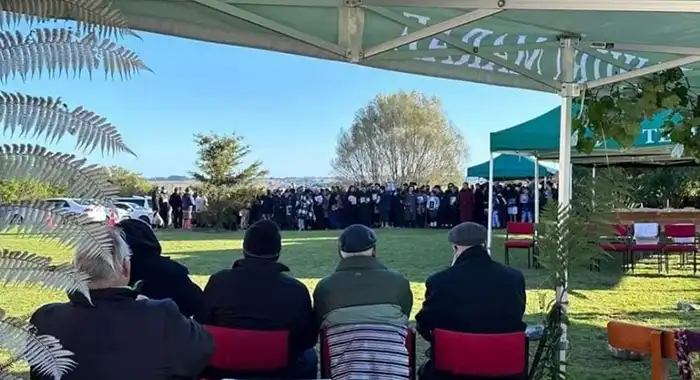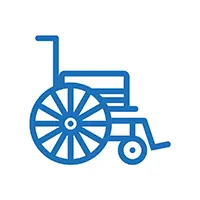Published 28 May 2024

Recently, Te Hiiri o Mahuta Marae, situated in the Manawatū region of Te Reureu Valley, celebrated its re-opening. The celebrations recognised three years of closure, the mahi of those involved, and finally having an accessible home for iwi and hapū of Te Hiiri marae.
Why accessibility matters to iwi
Accessibility on marae is just as important as accessibility for whānau in their own homes. Marae is recognised as ‘our principal home’ , therefore, it is used widely and regularly by the whole hapū and iwi. Kaumātua are an important part of activities on the marae. Many are using mobility assisted equipment, therefore, having a marae with ramps, disabled toilets and wide doors will enable our elders and disabled whānau to be a part of the activities as well.
The celebration
Over 600 guests from near and far attended the auspicious event. Whānau had anticipated this day for nearly three years as it was closed due to much-needed renovations and a new kitchen. COVID-19 played a big part in the lengthy closure. On the 27th of April 2024 whānau from around the region who had lost whānau in the three years of the marae being closed, were welcomed first with a pōwhiri for kawe mate.
Following this, another pōwhiri for manuhiri, contractors, builders, architects, engineers, and funding agencies were welcomed with a packed paepae to welcome them onto the marae.
Accessibility funding for Marae, not so accessible
Marae is not currently eligible for accessibility funding through Whaikaha - Ministry of Disabled People. Homemade accessible structures are a common feature at many marae today.
Although marae are recognised by iwi as their ‘principal home’, the Government criteria around individual funding categorises them as community space. This means iwi seek mainstream funding supports to enable accessibility modifications on marae.
A recent sitting with the Manawatū Council during community submissions, it was put forward to this district council that they consider funding accessibility for community spaces. Whilst marae are categorised as a community space, there are many community spaces council’s could consider making funding available to increase accessibility for.
The Manawatū Council is currently reviewing this, particularly in light of local civil defence planning. Marae and other community spaces are often named in plans as spaces to support our community during emergencies.
Marae are also used by big corporations for training. Many organisations are using marae to deliver programmes etc to staff and communities.
For Te Hiiri marae, Provincial Growth Fund (PGF) was much of the funding source for the build with Oranga Marae. Oranga Marae provided for essential minor renovations, e.g. new roofing, fences, and some infrastructure. Local council funding and Eastern and Central funding for furniture and crockery were also sourced. PGF provided for the major build and infrastructure.
Beginning early
Accessibility should be considered as an important part of the design planning process from the start. For the Te Hiiri marae project, ramps were initially overlooked and the marae had to source ramps one week out from the opening.
What the opening means to our community
The opening has meant that the whānau have now got a space again to host manuhiri and house their loved ones during tangihanga. The consideration of including accessibility into the build has meant that our tangata Whaikaha can live ordinary lives at the marae.
It has been difficult for many whānau who have not been able to bring their loved one's home to their marae to lay them in their beloved whare and be embraced by their whānau, hapū and iwi in their time of grief.
It will also mean that the other marae in the area who have maintained an open door to whānau of Te Hiiri marae while renovations took place, can be relieved of the extra time and work given to the whānau at that time. Over the past three years, the support received from the other marae in the valley has been enormous.
Two marae in the valley have been preparing to close for renovations soon. Te Hiiri marae can now reciprocate the support and be available to host these whanau as they did for the people of Rangatahi, Matakore.
Te Hiiri o Mahuta Marae
Ko Tainui te waka
Ko Ruahine ngā pae maunga
Ko Rangitikei te awa
Ko Kākāriki te pae whenua
Ko Ngati Rangatahi, Matakore ngā hapū
Ko Maniapoto te iwi
Ko Te Hiiri te marae
Ko Te Hiiri o Mahuta te whare
Ko Hato Hohepa te wharekarakia
Ko Te Puna kai o Te Hiiri te wharekai
Thanks to our Pou Tikanga contibutor Terewai Simmonds













